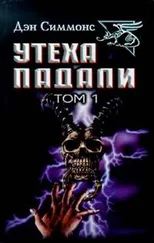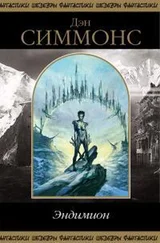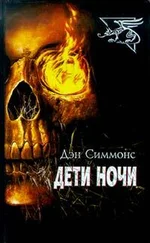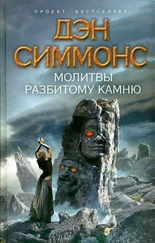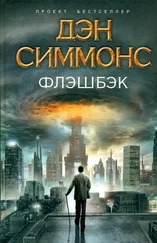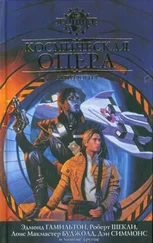Crozier checks his impulse to reassure the Marine private with facts. Young Wilkes might not find the facts so reassuring.
The first simple fact is that the scrabbling noise from the Dead Room is almost certainly the hundreds or thousands of large black rats feasting on Wilkes’s frozen comrades. The Norway rats — as Crozier knows better than the young Marine — are nocturnal, which means that they’re active day and night during the long arctic winter, and the creatures have teeth which constantly keep growing. This, in turn, means the God-damned vermin have to keep chewing. He has seen them chew through Royal Navy oak barrels, inch-thick tins, and even lead plating. The rats are having no more trouble down there with the frozen remains of Seaman Walker and his five unlucky comrades — including three of Crozier’s finest officers — than a man would have chewing on a strip of frigid salted beef.
But Crozier doesn’t think it’s only the rats that Manson and the others are hearing.
Rats, as Crozier knows from the sad experience of thirteen winters in the ice, tend to eat one’s friends quietly and efficiently, except for their frequent screeching as the blood-maddened and ravenous vermin turn on one another.
It’s something else making the clawing and banging noises down on hold deck.
What Crozier decides not to remind Private Wilkes of is the second simple fact: while the lowest deck would normally be cold but safe there beneath the waterline or winter line of frozen sea ice, the pressure from the ice has forced Terror ’s stern more than a dozen feet higher than it should be. The hull there is still locked in, but only by several hundred heaped tons of jagged sea ice and the added tons of snow the men have piled alongside to within a few feet of the railings so as to provide more insulation during the winter.
Something, Francis Crozier suspects, has dug down through these tons of snow and tunneled through the iron-hard slabs of ice to get at the hull of the ship. Somehow the thing has sensed which parts of the interior along the hull, such as the water-storage tanks, are lined with iron, and has found one of the few hollow outside storage areas — the Dead Room — that leads directly into the ship. And now it’s banging and clawing to get in.
Crozier knows that there’s only one thing on earth with that much power, deadly persistence, and malevolent intelligence. The monster on the ice is trying to get at them from below.
Without saying another word to Marine Private Wilkes, Captain Crozier goes below to sort things out.
Lat. 51°–29′ N., Long. 0°–0′ W.
London, May, 1845
He was — and always would be — the man who ate his shoes.
Four days before they were to sail, Captain Sir John Franklin contracted the influenza that had been going around, getting it, he was sure, not from one of the common sailors and stevedores loading the ships at London’s docks, nor from any of his one hundred and thirty-four crew members and officers — they were all healthy as dray horses — but from some sickly sycophant in one of Lady Jane’s circles of society friends.
The man who ate his shoes.
It was traditional for the wives of arctic heroes to sew a flag to be planted at some point farthest north, or in this case raised upon the completion of the expedition’s transit of the NorthWest Passage, and Franklin’s wife, Jane, was finishing her sewing of the silken Union Jack when he came home. Sir John came into the parlour and half collapsed onto the horsehair sofa near where she sat. Later he did not remember removing his boots, but someone must have — either Jane or one of the servants — for soon he was lying back and half dozing, his head aching, his stomach more unsteady than it had ever been at sea, and his skin burning with fever. Lady Jane was telling him about her busy day, never pausing in her recital. Sir John tried to listen as the fever carried him off on its uncertain tide.
He was the man who ate his shoes, and had been for twenty-three years, ever since he returned to England in 1822 after his first, failed overland expedition across northern Canada to find the North-West Passage. He remembered the sniggers and jokes upon his return. Franklin had eaten his shoes — and he’d eaten worse on that botched three-year journey, including tripe-de-roche , a disgusting gruel made from lichen scraped from rocks. Two years out and starving, he and his men — Franklin had dazedly divided his troop into three groups and left the other two bands to survive or die on their own — had boiled the uppers on their boots and shoes to survive. Sir John — he was just John then, he was knighted for incompetency after a later overland voyage and botched polar expedition by sea — had spent days in 1821 chewing on nothing more than scraps of untanned leather. His men had eaten their buffalo sleeping robes. Then some of them had moved on to other things.
But he had never eaten another man.
To this day, Franklin doubted whether others on his expedition, including his good friend and chief lieutenant Dr. John Richardson, had succeeded in resisting that temptation. Too much had happened while the parties were separated as they stumbled through the arctic wastes and forests, desperately trying to get back to Franklin’s little improvised Fort Enterprise and the real forts, Providence and Resolution.
Nine white men and one Esquimaux dead. Nine dead out of the twenty-one men young Lieutenant John Franklin, thirty-three years old and pudgy and balding even then, had led out of Fort Resolution in 1819, plus one of the native guides they’d picked up along the way — Franklin had refused to let the man leave the expedition to forage for himself. Two of the men had been murdered in cold blood. At least one of them was, without doubt, devoured by others. But only one Englishman died. Only one real white man. All the rest were mere French voyageurs or Indians. This was success of a sort — only one white Englishman dead, even if all the others had been reduced to gibbering, bearded skeletons. Even if all the others survived only because George Back, that confounded, oversexed midshipman, had snowshoed 1,200 miles to bring back supplies and — more important than supplies — more Indians to feed and care for Franklin and his dying party.
That confounded Back. Not a good Christian at all. Arrogant. Not a true gentleman, despite his later being knighted for an arctic expedition sailing on this very same HMS Terror that Sir John now commanded.
On that expedition, Back’s expedition, Terror had been flung fifty feet into the air by a rising tower of ice, then thrown down so violently that every oak plank in the hull sprang a leak. George Back brought the leaking boat all the way back to the coast of Ireland, beaching it just hours before it would have sunk. The crew had wrapped chains around it to squeeze the boards tight long enough for the vessel to get them home. All the men had scurvy — black gums, bleeding eyes, teeth falling out of their heads — and the madness and delusions that went with scurvy.
They’d knighted Back after that, of course. It’s what England and the Admiralty did after you returned from a polar expedition that failed miserably, resulting in appalling loss of life; if you survived, they gave you a title and a parade. After Franklin returned from his second coastal-mapping expedition in the far north of North America in 1827, he was personally knighted by King George IV. The Geographical Society of Paris gave him a gold medal. He was awarded captaincy of the beautiful little 26-gun frigate HMS Rainbow and ordered to the Mediterranean, a destination to which every captain in the Royal Navy prayed nightly for posting. He proposed marriage to one of his dead wife Eleanor’s dearest friends, the energetic, beautiful, and outspoken Jane Griffin.
Читать дальше

